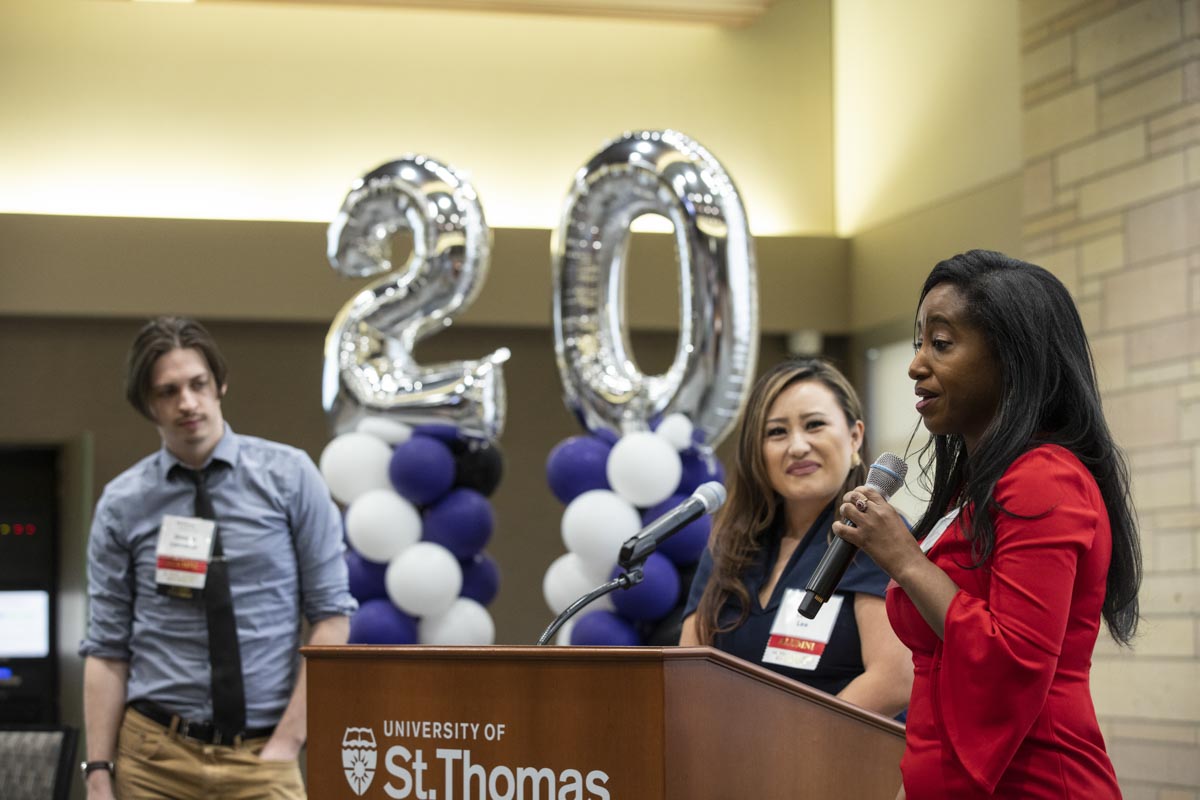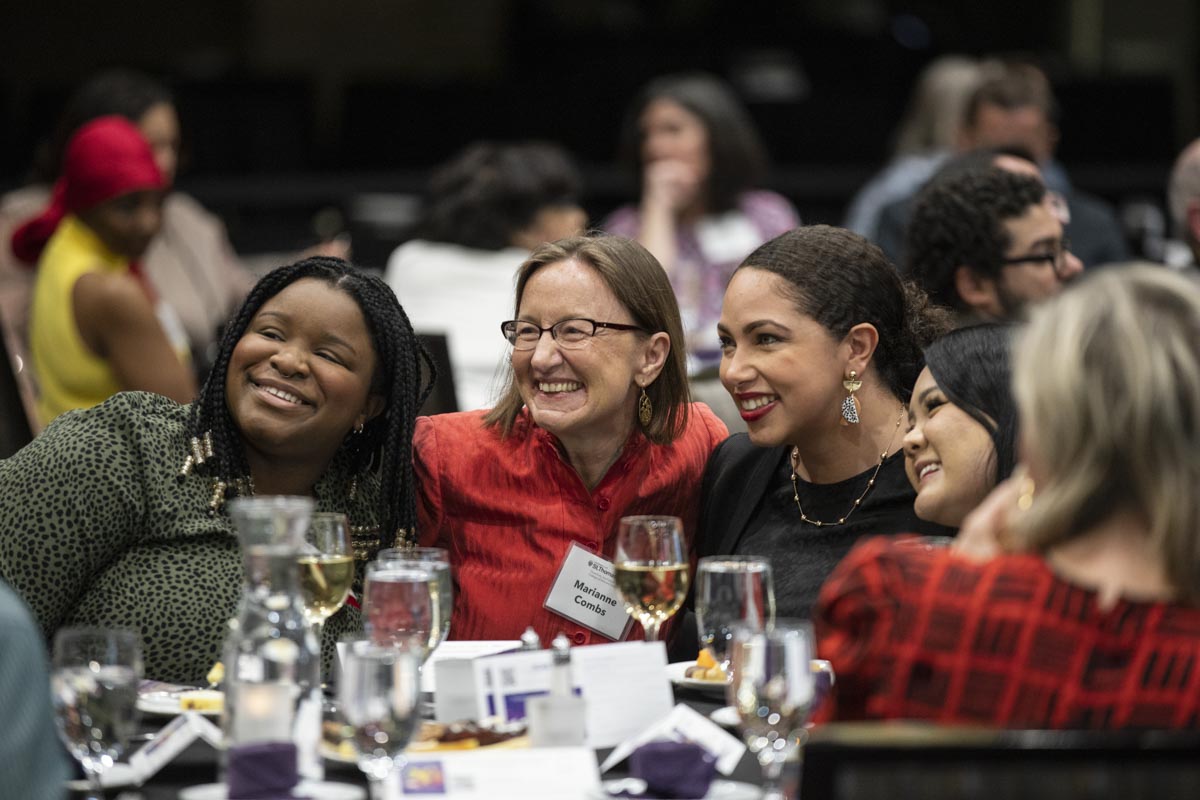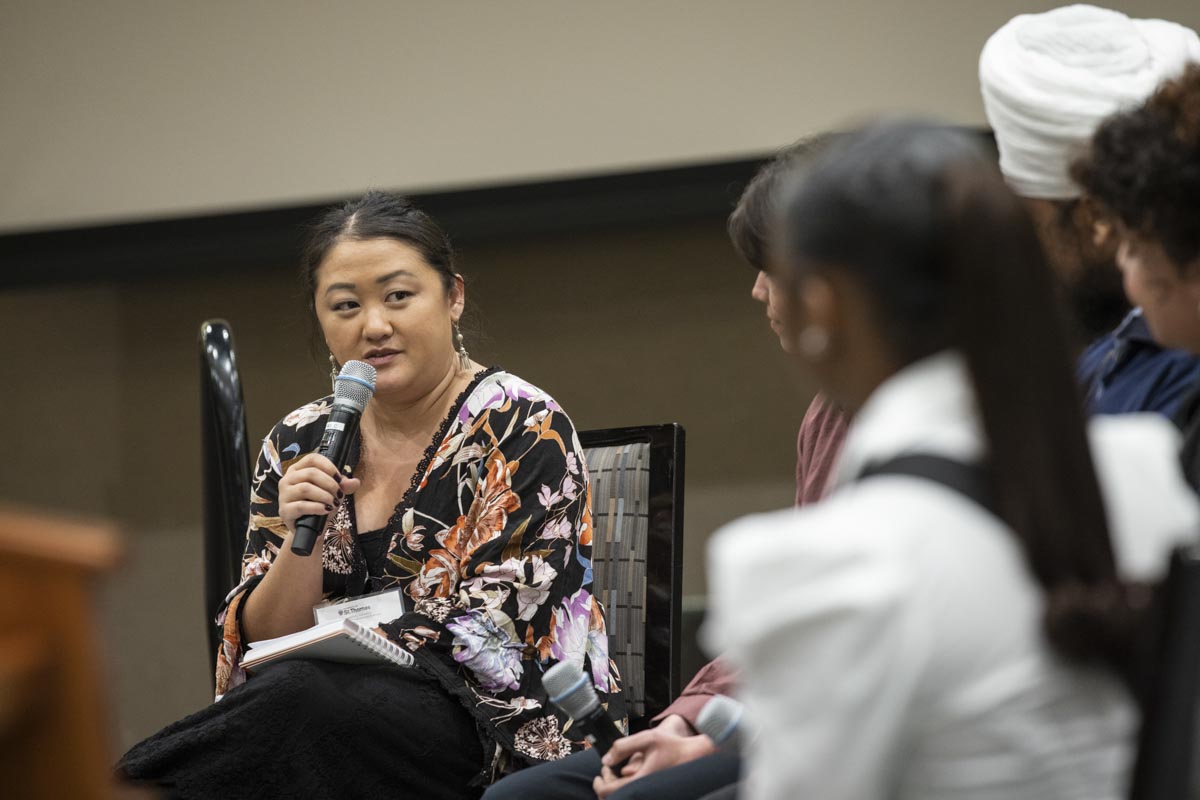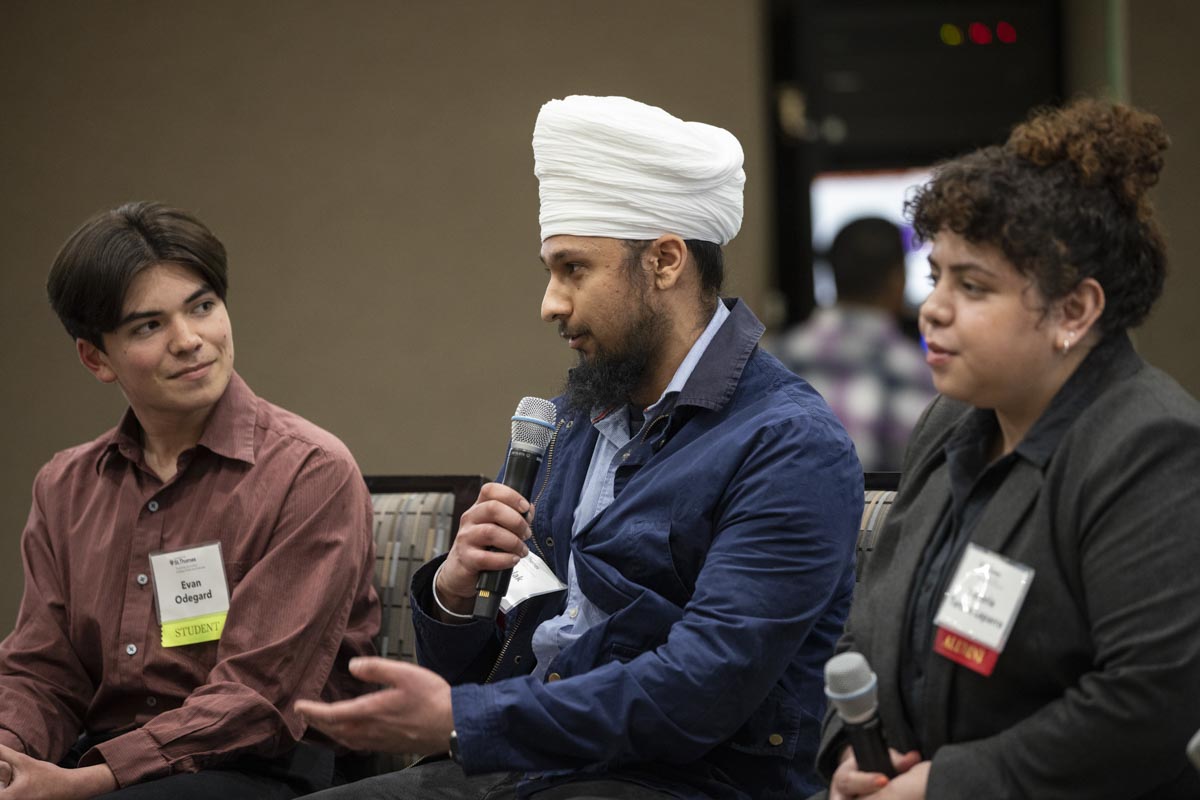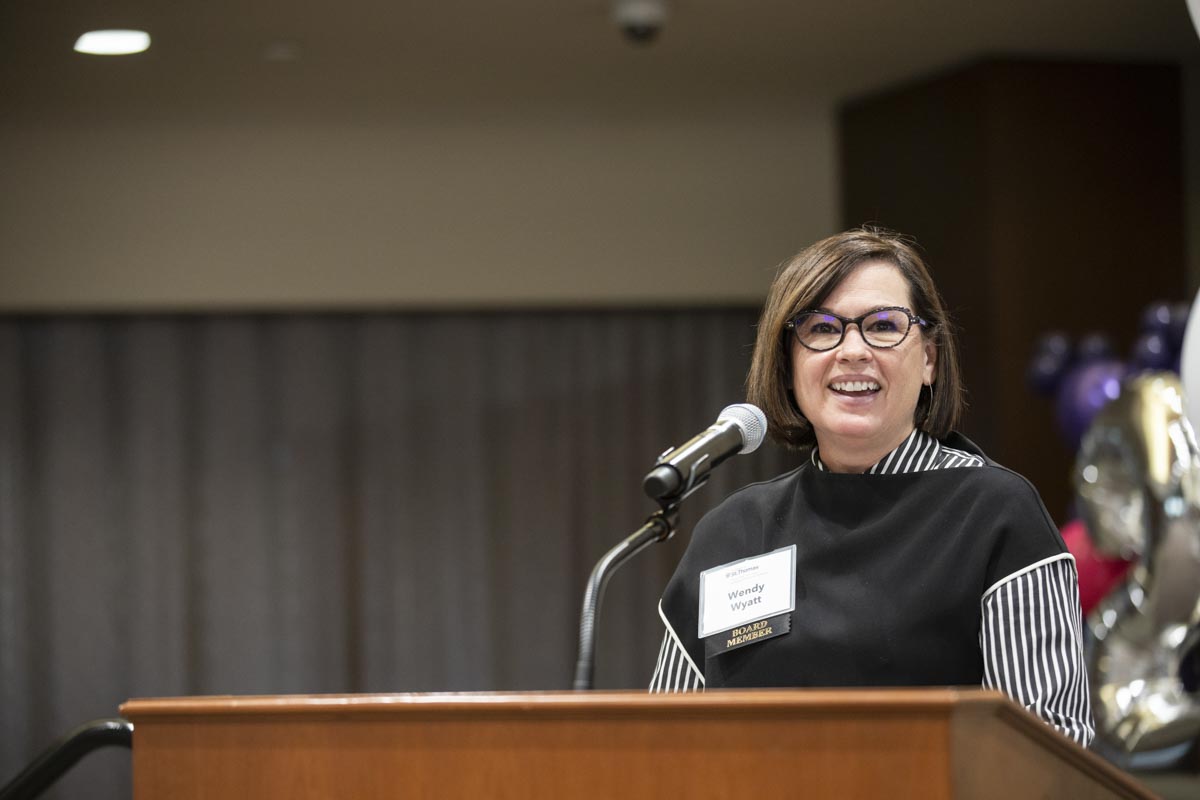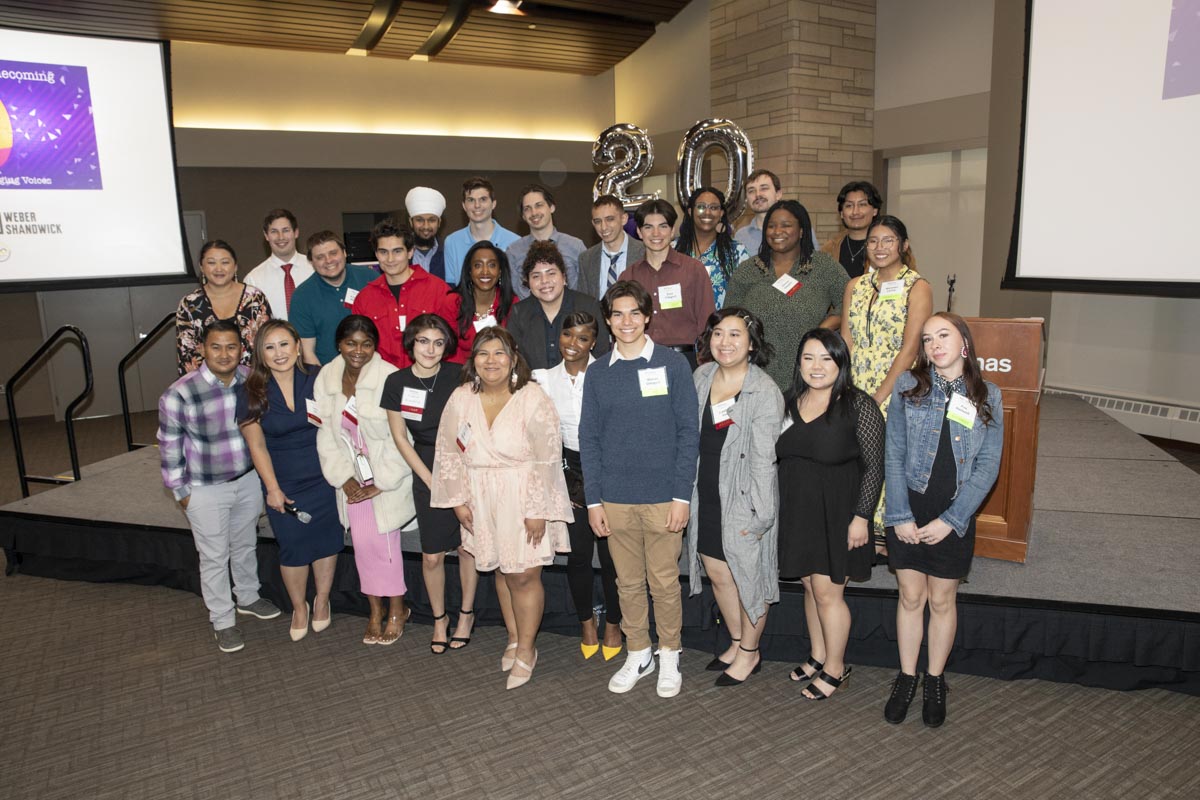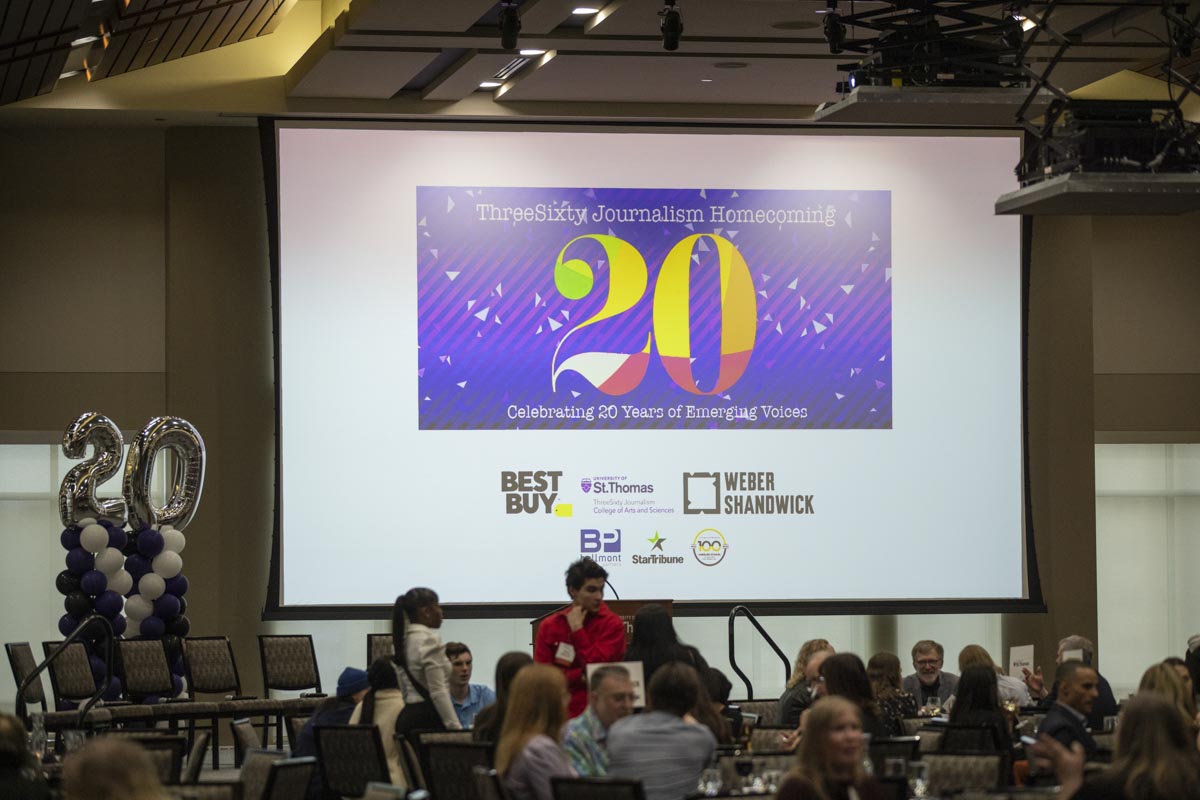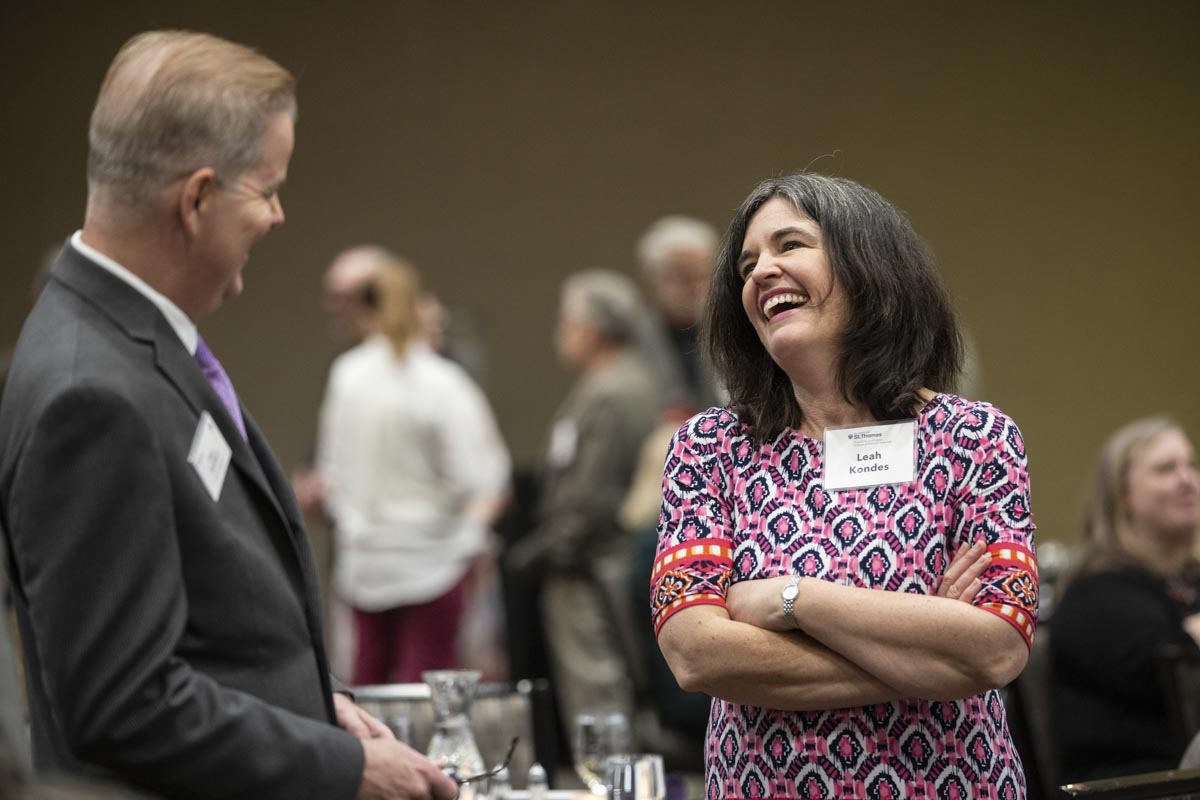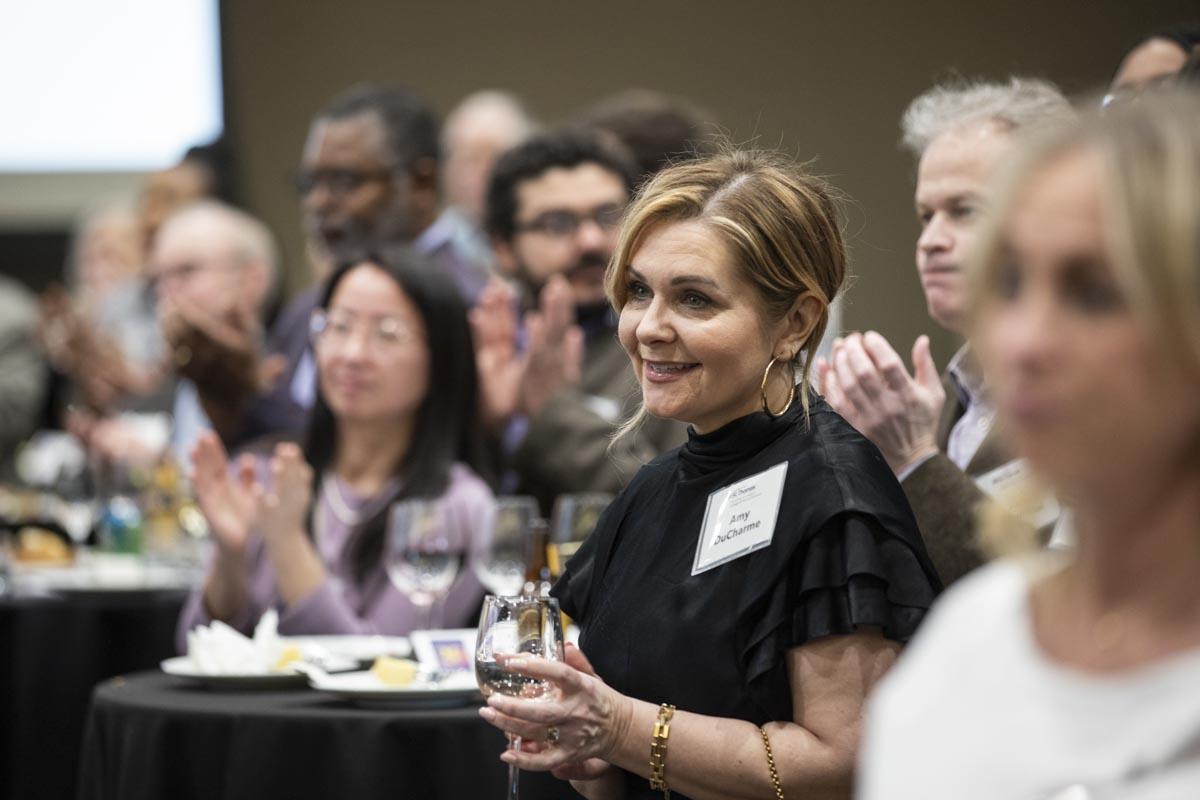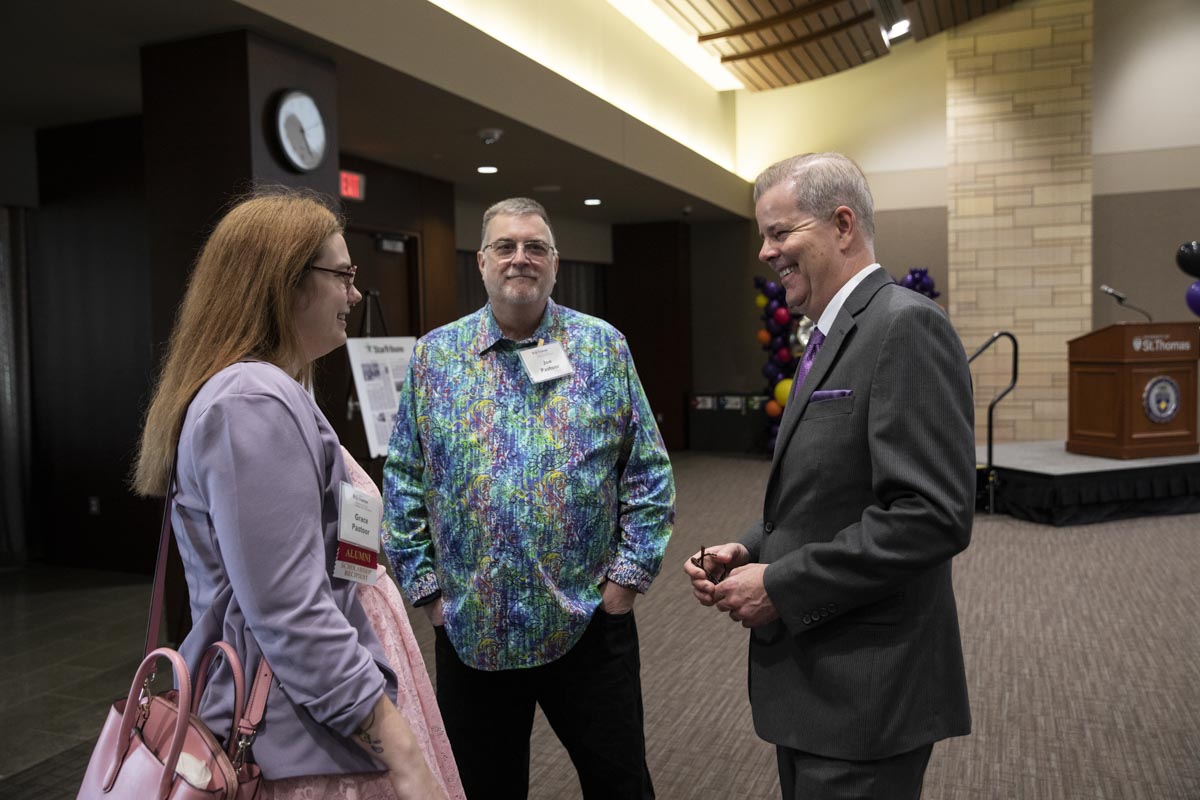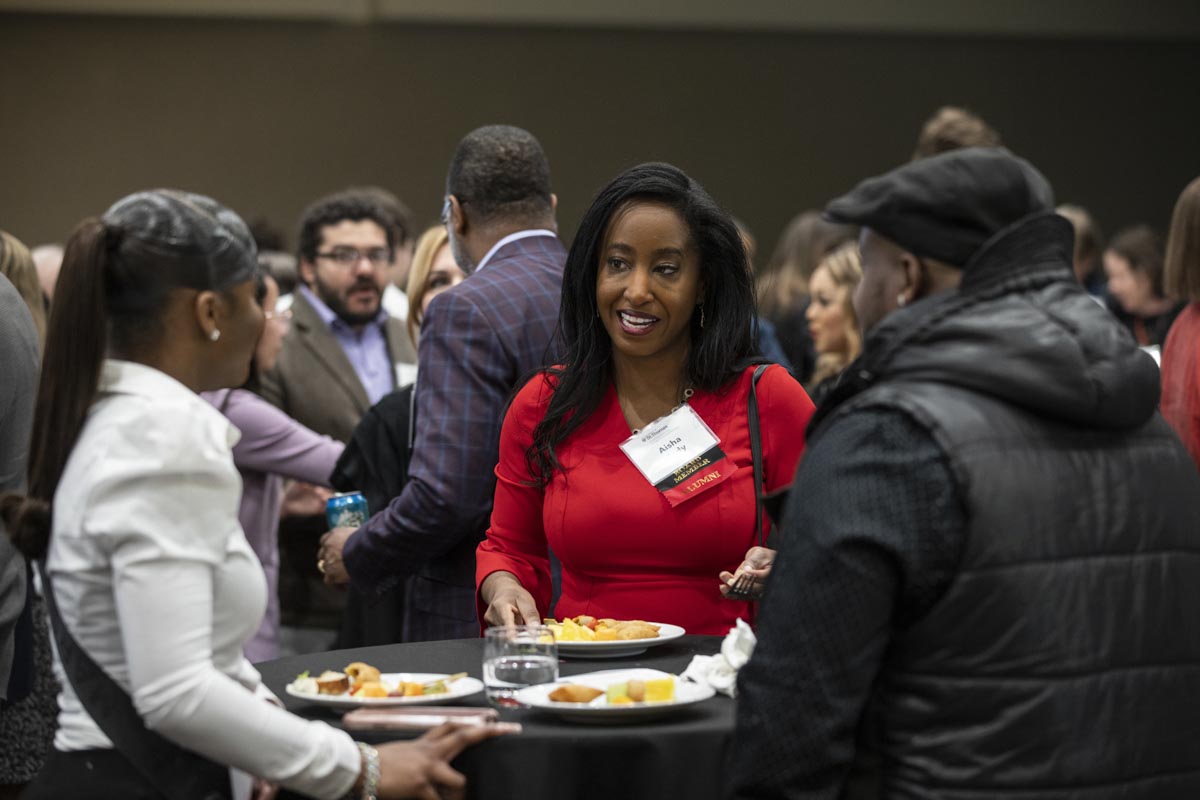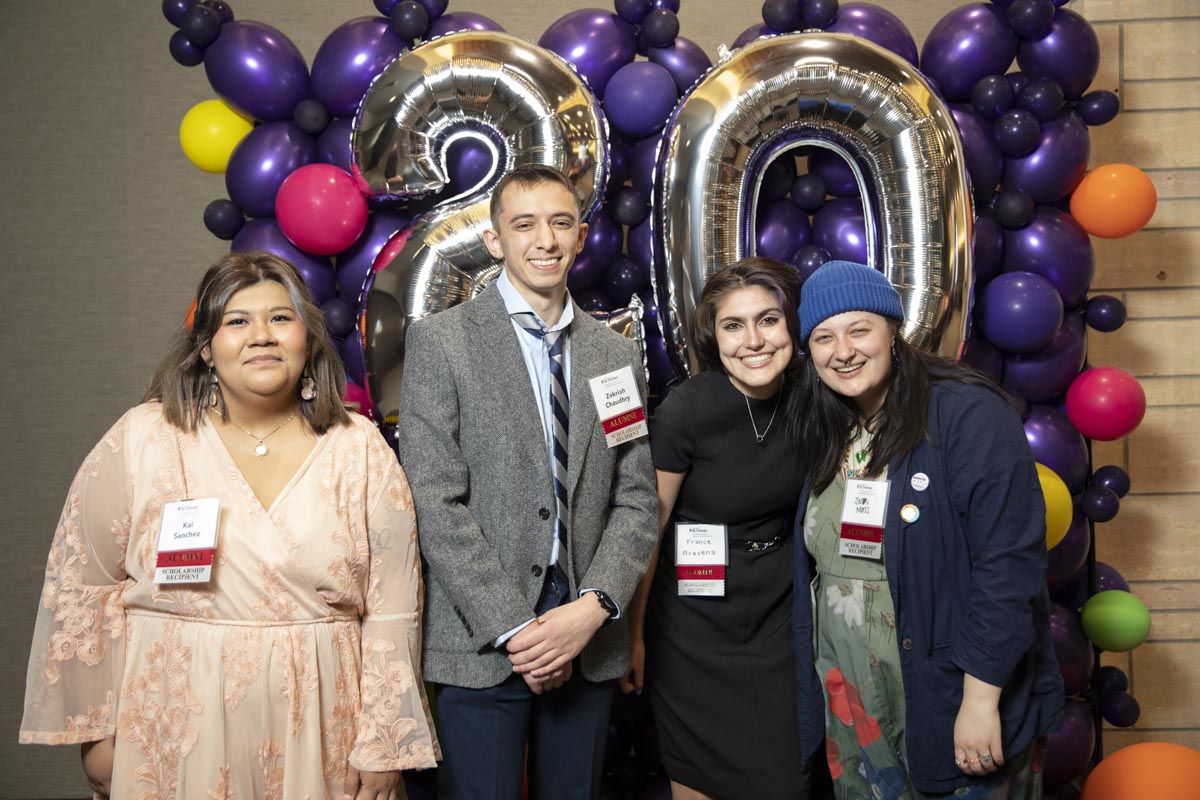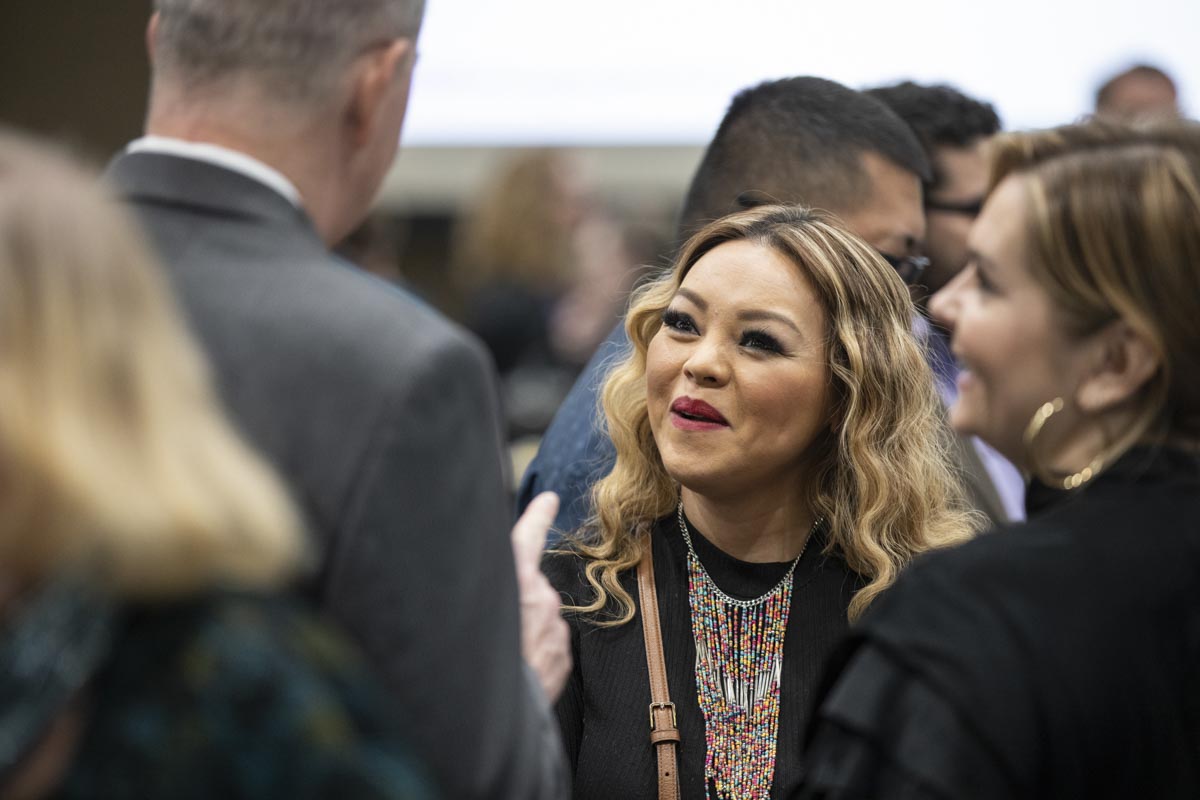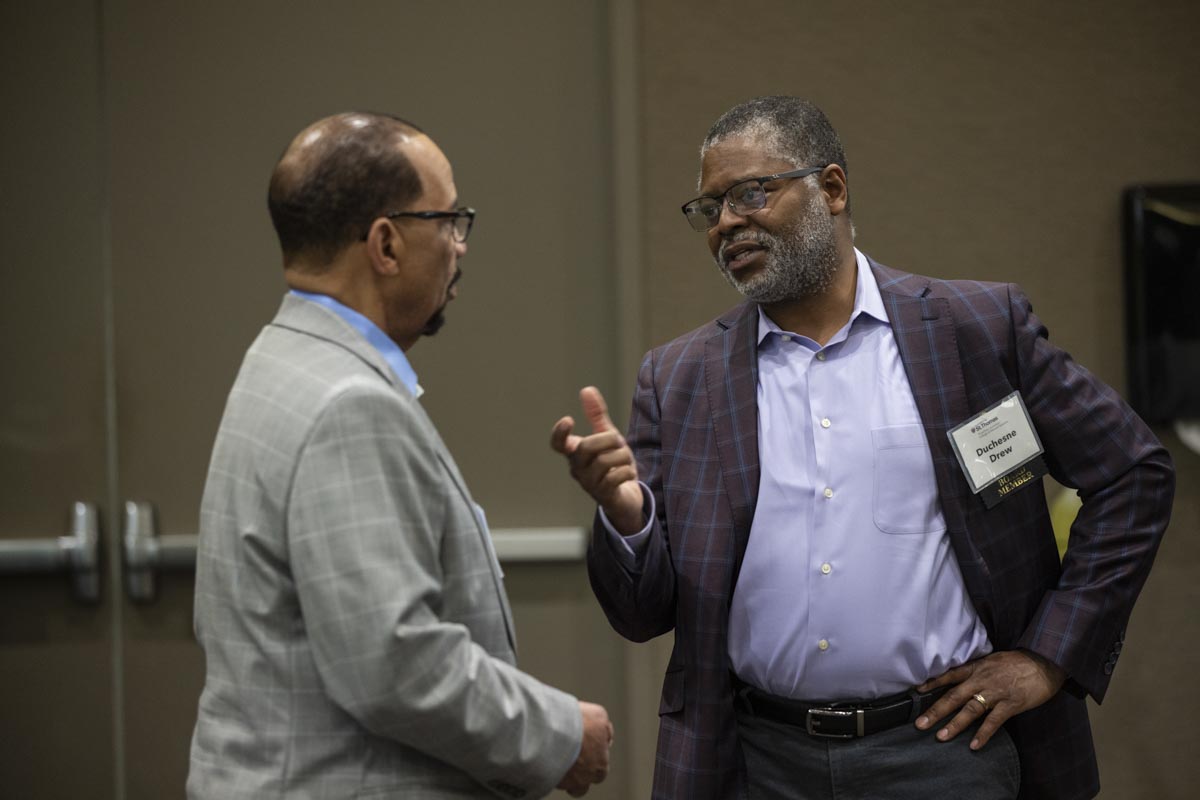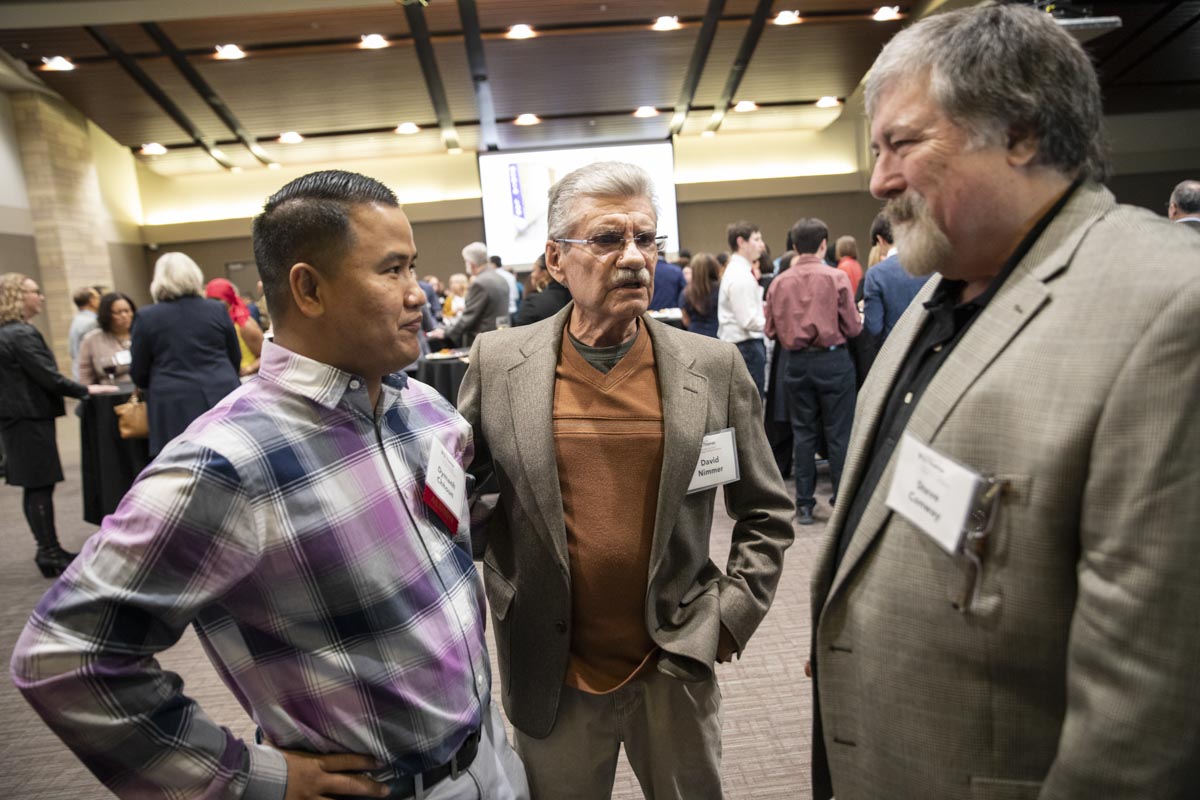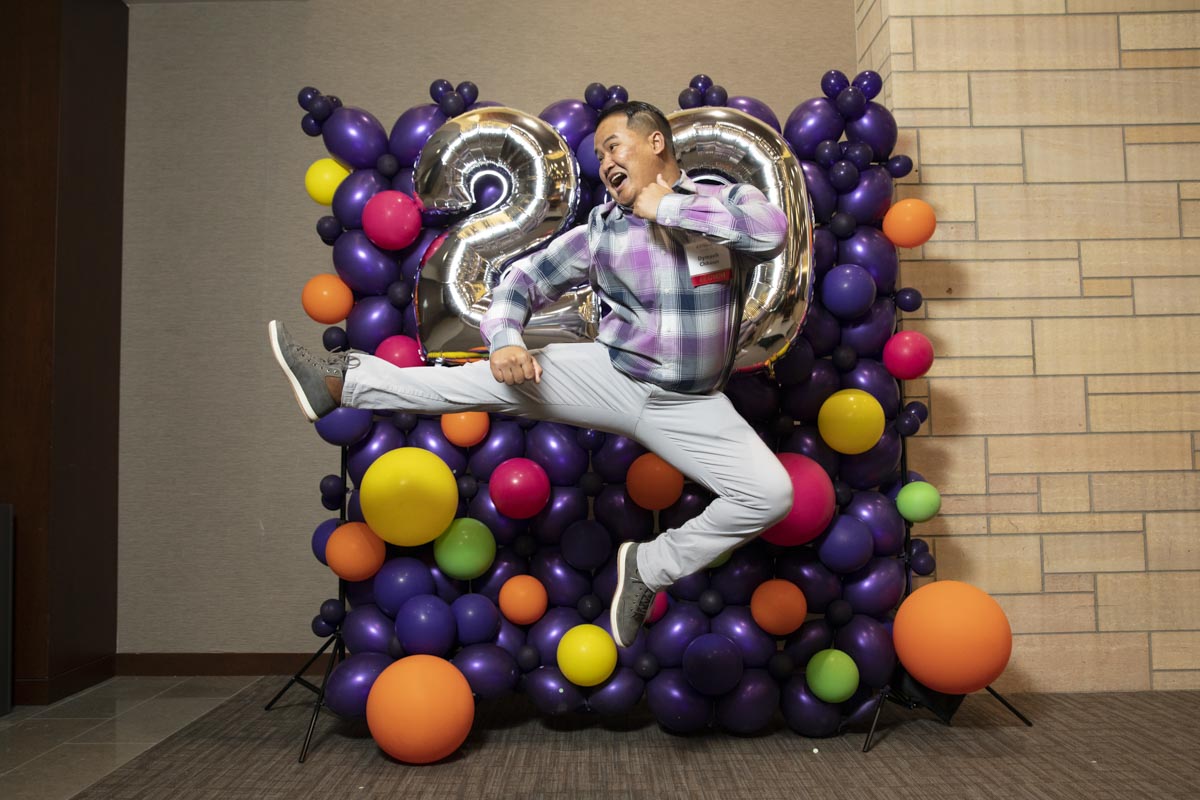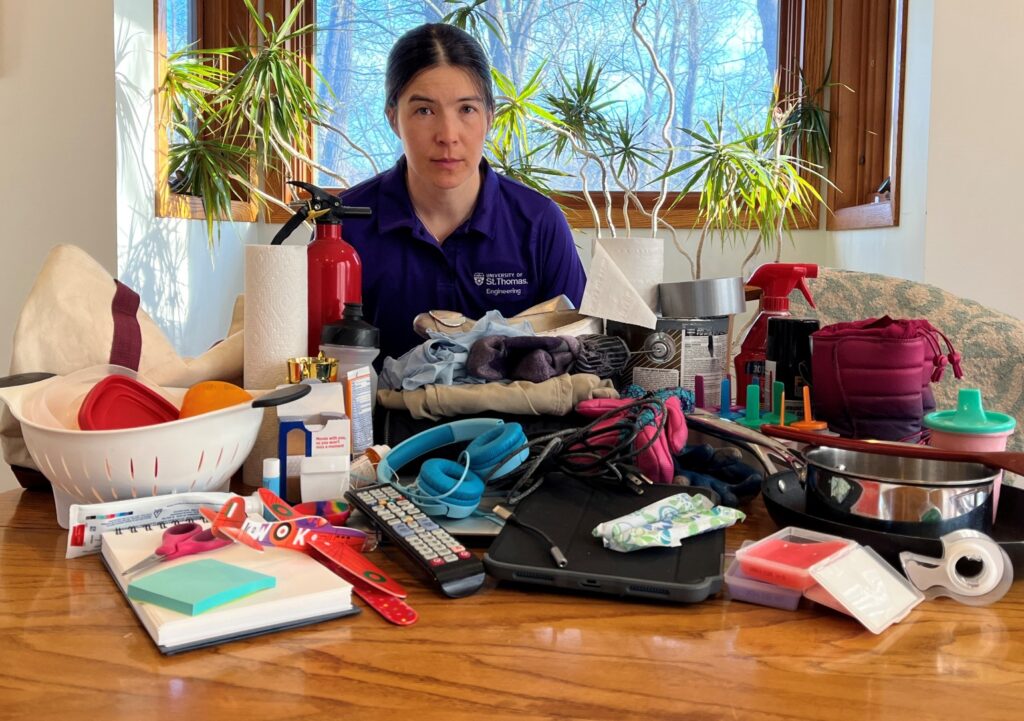In classrooms just off St. Paul’s Cretin Avenue, high school students piece together sound bites and interview notes they will transform into published work, marking them as journalists – broadcast or print, depending on the workshop.
Participants in the ThreeSixty Journalism program have been coming to the St. Thomas campus for 20 years, learning an age-old craft that allows them to tell stories that reveal important realities about their communities. Many of these budding journalists eventually join the ranks of representative truth tellers the program has helped grow for the last two decades.
“Our students realize how important it is for them to share their stories, what’s important and what people need to hear more about,” ThreeSixty Executive Director Chad Caruthers said. “We empower them to share their stories and we amplify them, but at the end of the day, our community needs their stories.”
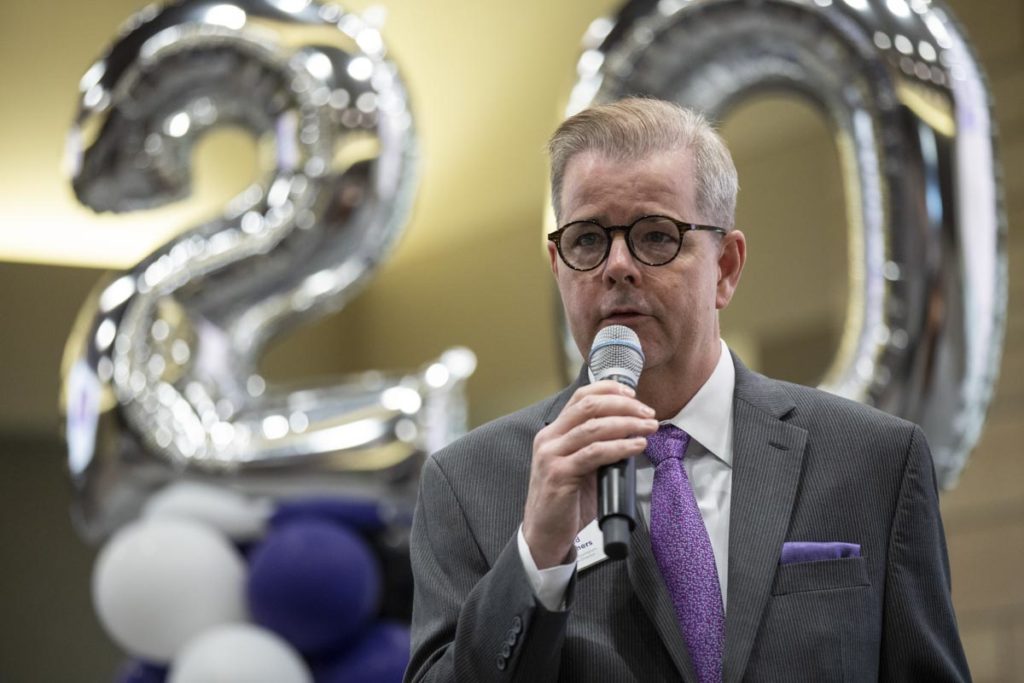
ThreeSixty Journalism celebrated its 20th anniversary with an April 9 event that reunited more than 150 program alumni and supporters on campus. Operated by the University of St. Thomas, ThreeSixty continues to serve as a leading career academy for promising high school students and is helping shape a future media that is representative of Minnesota’s rapidly diversifying population.
“You can tell from the stories tonight, from the connections here, that we've got something special,” said Minnesota Public Radio President Duchesne Drew, who’s been involved in the program for more than 20 years, back when it was known as the Urban Journalism Workshop. “This program, whether students come to it in their ninth-grade year or as seniors, it touches their heart and changes their sense of what they can do and, in many cases, changes what they go on to do.”
ThreeSixty’s mission is as important as ever amid rapidly evolving community demographics. In the last two decades, the number of Twin Cities residents identifying as Black, Indigenous or people of color grew from 24% to 31% in 2020, with some racial and ethnic groups growing more than five times faster the total population, according to the state’s most recent racial disparities report. The BIPOC community, however, is underrepresented in the Twin Cities news media, as well as nationally. At ThreeSixty, however, 80% of its participants are students of color.
Early beginnings, amplifying new voices
ThreeSixty Journalism launched at the University of Minnesota in 1971 as early signs of these major demographic trends prompted the Twin Cities’ two daily newspapers to create what was then called the Urban Journalism Workshop, a summer program run entirely by volunteer journalists. The program served only a handful of students each year, compared to the approximately 100 a year today.
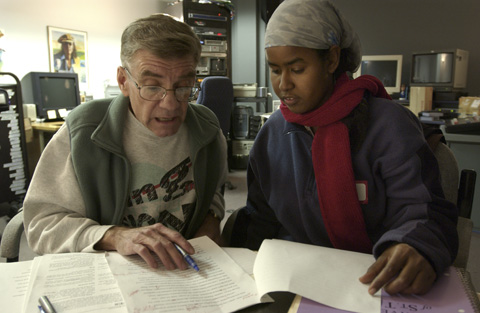
Dave Nimmer, who worked in TV and newspapers before joining St. Thomas’ faculty, and Kathleen Stauffer, managing editor of the Catholic Digest, envisioned more for the program.
The duo partnered with the Twin Cities Black Journalists, a key backer of the Urban Journalism Workshop, to move the program to St. Thomas in 2001. The university committed to raising funds that would enable the initiative to hire an executive director and build it into an effective, year-round program, train more high school students, support more journalism teachers and advisers, track the progress of alumni and serve as an outreach tool for St. Thomas and the journalism program.
With the help of grants from the John S. and James L Knight Foundation and the Star Tribune Foundation, in 2002, the program hired veteran Pioneer Press journalist Lynda McDonnell as its full-time director to develop year-round programming and outreach.
The Twin Cities journalism industry rallied behind the evolving program both financially and in volunteering its expertise. Relationships formed between program participants and industry mentors representing the Twin Cities Black Journalists, Asian American Journalists Association and Native American Journalists Association, Hubbard Broadcasting, the Twin Cities Newspaper Guild and local TV and newspapers, lasting into college and careers.
“We’ve got ThreeSixty alumni in local newsrooms and plenty of shops in town that do communications work,” Drew said. “How far we've come, and the impact, far exceeds what we thought was possible years ago. The impact that it has had on their lives, our lives, the community, is palpable. I'm excited for the next 20 years.”
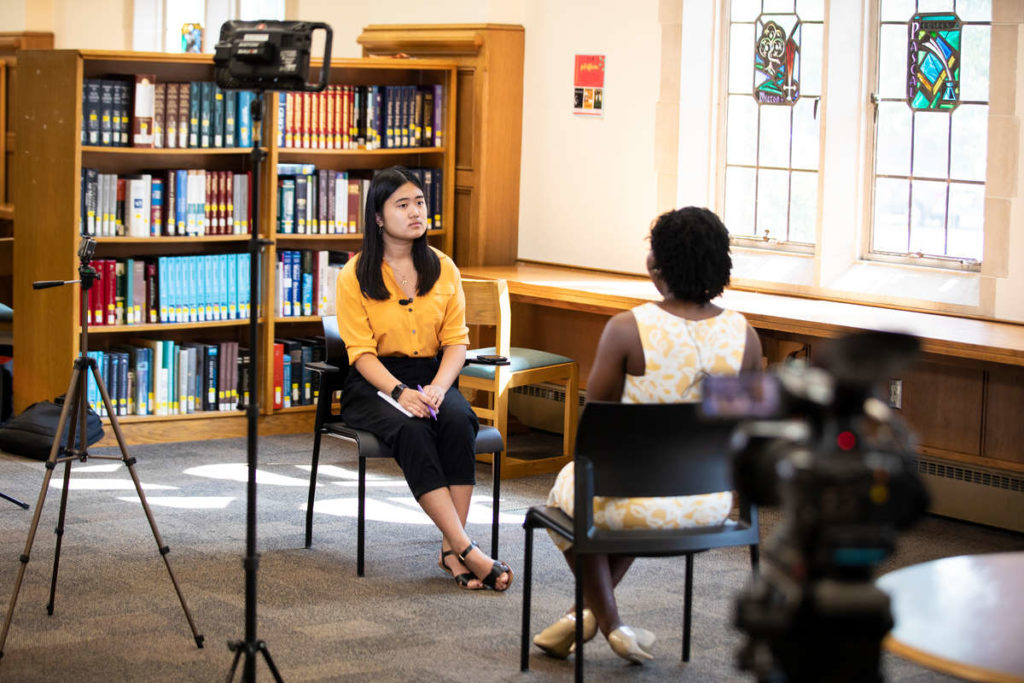
By 2003, the program awarded its first full-tuition scholarship for future St. Thomas journalism students and has financially supported promising scholars each year since. In 2006, the program’s name changed to ThreeSixty Journalism, reflecting its programming and geographic growth.
ThreeSixty’s home at St. Thomas means the students have access to the university’s network of mentors and experts, facilities and equipment, but a support system that goes well beyond high school.
“We are a pathway to higher education for underrepresented populations and students,” said Caruthers, who became executive director in 2014. “Being housed at St. Thomas, we can support these students at a pretty high level, to navigate the higher education process at St. Thomas but also beyond. They're a very engaged audience, I mean, not a day goes by that somebody [who participated in ThreeSixty] doesn't stop by.”
A ThreeSixty support system
Beyond the high school program, ThreeSixty supports cohorts that averages about two dozen students and alumni who return to the classrooms they became familiar with in summer camps and workshops to pursue a bachelor’s degree.
One of those students is Danielle Wong ’20, who earned her first major writing accolade when she was just 13, besting college students in a state journalism contest for a story she wrote while at ThreeSixty.
“Doing work specifically around my identities, as an Asian American, an Asian American woman, and a daughter of immigrants, is so important to me,” Wong said. “Something that ThreeSixty has so deeply embedded and grounded in me is who I am. What I did carry with me always was knowing the power of my voice, and how that enriched my perspective and made my work better.”
For Levi Ismail ’12, who was born in Cairo, Egypt, ThreeSixty’s approach to support made all the difference. His South Sudanese family immigrated to Minnesota when he was seven. Introduced to ThreeSixty by a high school teacher, Ismail saw a pathway to a career in broadcast journalism for the first time.
“I didn't realize this was a career, mainly because I didn't see anybody like myself doing it,” said Ismail, who recently became part of the award-winning investigative unit for Nashville’s CBS affiliate. “It was amazing being able to meet people who looked like me in Twin Cities newsrooms and hearing those same folks say, ‘hey you can do this.’”
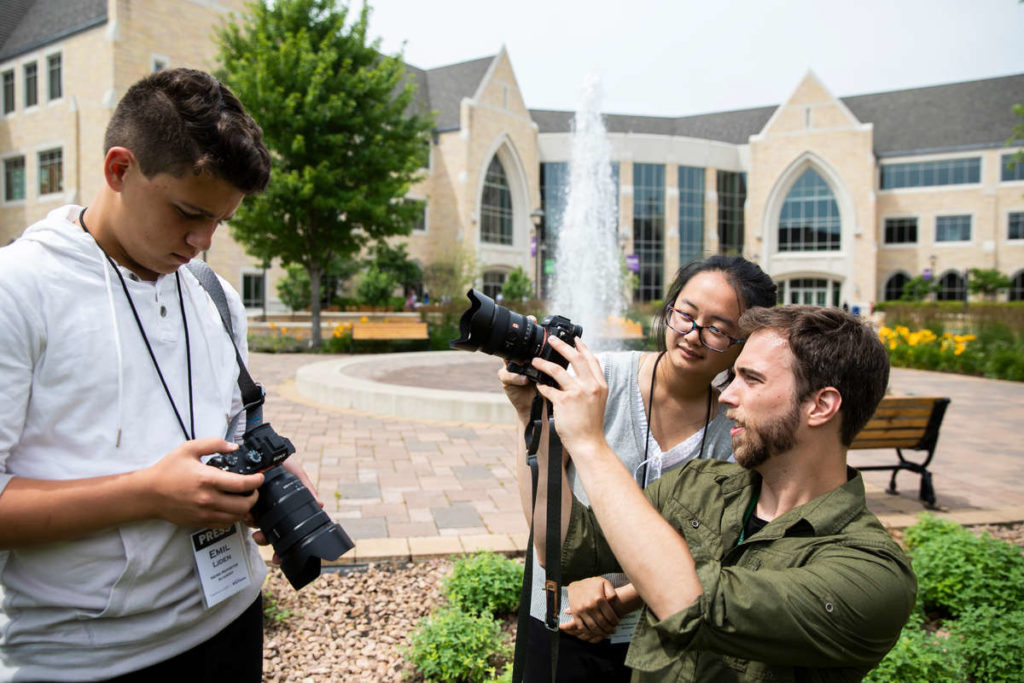
Simeon Lancaster ’17 is also a ThreeSixty scholar who went on to earn his bachelor’s degree from St. Thomas. His work in journalism has taken him on assignments all over the world: Mexico, Cambodia, India, Uganda - but ThreeSixty has remained important to him. He now serves as an advisory board member for the organization.
“I'm really happy to see new kids coming in, being impacted by the program, the trainings, the level of passion that the educators and the directors and the advisers and the volunteers all bring to the students.”
Lancaster added that it’s that mix of these passionate people taking young people very seriously that really fueled him. “I'm really happy to see the program so strong today and only getting stronger and growing. They're cranking out amazing students.”
ThreeSixty’s alumni describe themselves as a tightknit community who lean on each other to navigate the transition into journalism, media and beyond, together. At ThreeSixty’s anniversary event, Aisha Eady, who was a participant in the program in 2002 and now volunteers as an advisory board member, said the program plants seeds that spread well beyond just its participants.
“These students, they'll go on, but come back to help the next generation,” said Eady. “I continue to be involved in this program because it means that much to me.”
The strength of ThreeSixty students’ life experiences and identity, continue to shape the perspectives they’re able to convey through storytelling.
“What we've tried to emphasize is that what we're doing has an impact beyond teaching young people to be great storytellers,” Caruthers explained. “That's obviously critical, that's the biggest reason we're here, but it has a potentially long-lasting, deep and important impact on the community and future.”
